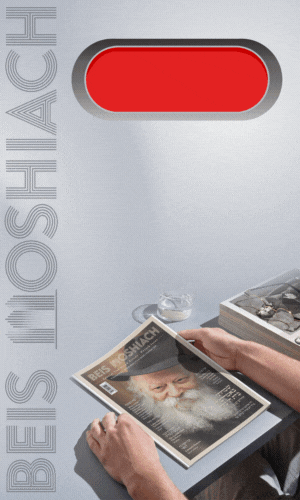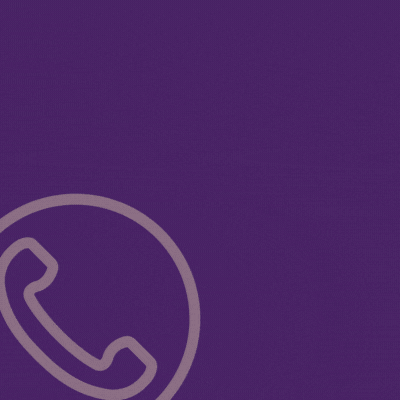An Uphill Battle – and Still Pushing
There have been many dedicated and talented hands in the Jewish community’s efforts to convince Governor Andrew Cuomo to permit sleepaway camps to operate legally this year. While some restrictions put in place to fight the spread of the novel coronavirus have been slowly rolled back, after months of discussions, the administration announced that, while day camps will be permitted, sleepaway options will not. Despite the seeming finality of the announcement, efforts to appeal are still underway • Full Story
Hamodia
There have been many dedicated and talented hands in the Jewish community’s efforts to convince Governor Andrew Cuomo to permit sleepaway camps to operate legally this year. While some restrictions put in place to fight the spread of the novel coronavirus have been slowly rolled back, after months of discussions, the administration announced that, while day camps will be permitted, sleepaway options will not. Despite the seeming finality of the announcement, efforts to appeal are still underway.
As the struggle evolved into a direct lobbying effort with authorities in Albany, Agudath Israel of America’s New York State director of government affairs, Rabbi Yeruchim Silber, was enlisted to lead the fight.
Rabbi Silber spoke with Hamodia to discuss the valiant, but as-yet-unsuccessful, effort.
Please talk us through the background of the lobbying efforts for camps over the past few months.
The camp lobby started right after Pesach as sort of a grassroots effort by a group of camp directors. When they realized that there was a real possibility that they would have a problem getting permission to open this year, they worked to head that off by talking to doctors and putting together protocols that would allow them to operate camps in a way that minimized the risk of infection. They worked on it for weeks with a lot of help from Rabbi Meir Frischman, Camp Agudah’s director emeritus; Rabbi Shlomo Pfeiffer, director of Camp Remimu; Dr. Moshe Lazar, a pediatrician; and several others. They submitted their plans to a group of infectious-disease specialists and came up with a final product that they felt was practical and achieved the intended goal.
At the same time, there had been statements from officials in some of the local towns that they were against camps getting licenses this year, due to the health risks. There was talk that the Sullivan County legislature was going to write the governor asking him not to allow sleepaway camps to open in the county, which would have been disastrous. But, the working group shared their protocols with them and that was enough to get them not to petition the governor publicly.
When and how did you get involved in the process, and where did things proceed from there?
The camp directors asked for Agudah’s help about a month ago when they wanted to move their lobbying effort directly to the governor’s office. I basically took the lead in that part of the campaign, working closely with the camp directors’ group.
Since then, we’ve had a lot of contact with the Cuomo administration’s staff and with some key legislators. The most formal efforts were three conference calls we had together with the Governor’s Special Counsel and Senior Advisor, Elizabeth Garvey; Robert Mujica, director of the budget office; health commissioner, Dr. Howard Zucker; and a few other officials that they had on the line. On the first two calls, Assemblyman Simcha Eichenstein, who played a major role in this entire effort, was also on the line.
The first call basically went as we expected. They listened to our proposal and our arguments and told us that they would take what we presented into consideration. After that, we had some back and forth with them, and eventually had a follow-up call which was pretty disappointing. We were expecting them to have delved into the proposal and to hit us with questions on it – which we were prepared to answer. But, they didn’t really have any questions for us and just listened to us again without offering much feedback. It gave us the impression that they hadn’t taken what we worked on too seriously.
The third meeting was last Monday, which was not encouraging. Dr. Zucker did not seem too interested in what we had to say and spent most of the time going back and forth with the doctors we brought onto the call. However, from the tone of the conversation, it sounded like a forgone conclusion that they were not going to sign off on sleepaway camps. The next day, Dr. Zucker had a similar conference call with directors and askanim for Chassidishe camps, and they basically walked away with the same impression.
As you know, then, late on Friday afternoon they gave out a press release about their decision and on Shabbos put Dr. Zucker out front to explain the move. After Governor Cuomo has been out in front on this crisis and micromanaged every aspect of it, it seemed like a strange way to do business.
What do you think is signaled by the approach they took and the way the announcement was made? Do you feel there is something to the decision beyond what the administration is saying publicly?
I have my theories like everyone else, but I don’t want to speculate as to their motivations. As to the way the governor’s office announced the decision, it certainly seemed like they were trying to hide from the issues and were afraid to take responsibility for it.
Dr. Zucker said that the decision was made “based on data and science, rather than emotion.” Do you feel that plays out in reality?
There are a few things that do not make much sense about saying this decision is based purely on health concerns. The state approved day camps, for which we are very grateful. But, the risks of day camps, where kids go home every night to their families and have activities around the area where they are based, pose a far greater risk of infection and spread than campers who would be essentially locked down in their campgrounds. We were not going to allow trips or for staff to leave the grounds. Everybody would only come to camp after they were tested and quarantined for two weeks.
Secondly, many parts of the state will be moving into phase four in the coming weeks. Phase four permits all kinds of outdoor recreation to go on. If horse racing is permitted, why are camps different?
There are a lot of products and activities that come with risks, and if you do them, that is something you accept. No one cares about a child’s health more than a parent, and any child who would have gone to camp would be there because their parents were comfortable with the risks involved.
Multiple times when the governor publicly commented on the issue of sleepaway camps, he said that the administration was waiting for more information about PMIS, the disease that has given some children symptoms very similar to Kawasaki syndrome, R”l. How big a role do you think this played in the final decision?
I think it had very little to do with it. Not much more is known besides the fact that baruch Hashem it is very rare and the connection to COVID is still unclear. I think the Kawasaki discussion in terms of camps was always used as a distraction, and they dropped it in the end.
Do you think the emotional picture of a population migrating from New York City, the virus’ epicenter, to rural areas played a role, in spite of plans and data?
I think it might have had something to do with it. But the fact is that the present situation of the numbers of cases in New York City is very different than it was, and the campers were not going to be taking trips around the Catskills. Our plan was to bus them there and have them stay on the grounds, so the local populations would not have been any more exposed to the virus than they were until now.
Do you think the state’s actions on camps fit into a bigger picture of the state’s inability to adjust to the changed landscape of the virus over the past month or so as cases have drastically dropped?
I think that everybody agreed with what the state did in March and April when the situation was very serious and very scary. Our community responded the same way, and we shut down our schools and shuls and did whatever we could to stop the spread and protect lives. At that point, the slow phased reopening of regions made a lot of sense.
Now, as the governor himself has said, we have not only flattened the curve, we’ve crushed it. We have every reason to believe that the lockdown and social distancing are to thank for that, but the facts on the ground are very different than they were. Doctors have told us that they have a much better understanding of how to treat the virus, and now that hospitals are no longer overwhelmed, they are able to deal with serious cases much more effectively than they could at the height of the crisis.
What the state did worked very well, but it seems they are stuck in a certain way of thinking and can’t adjust to the fact that they are now dealing with a much better reality.
Are Agudath Israel and others who are working on this project still considering other efforts to allow sleepaway camps to open legally in New York State?
Camp would normally be only a few weeks away, but we haven’t given up yet. The details are not final, but we are seriously considering all our options, including a possible legal challenge to the governor’s decision.
252
Join ChabadInfo's News Roundup and alerts for the HOTTEST Chabad news and updates!










































